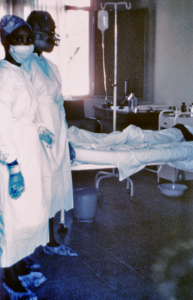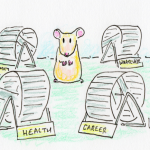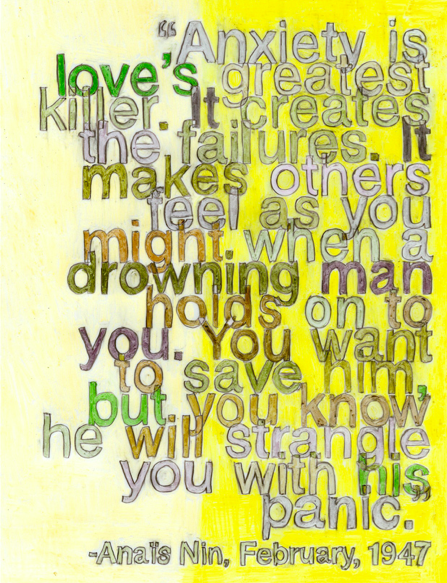While I was waiting for a flight last week, all airport televisions were blaring ongoing ‘coverage’ of the man with Ebola in Dallas, and the people he may or may not have come into contact with, and who would or would not be responsible for disinfecting the apartment he’d been staying in. It was banal television scare-mongering at its worst, and I endured only a few minutes of it before inserting my noise-reduction headphones and blasting a compline service.
It’s been a mere six months since my family and I returned from our year and a half in Malawi, Africa. Which brings me to the first thing you need to know:
1. Africa is a continent, not a country, and it is really, really, really large. Not all Africans are in danger of getting Ebola.
We were in Malawi, which is about as far from the Ebola zone as New York is from, oh, Mexico City. Except that the states in between are countries that are guarded by armed border guards and there’s no nice interstate highway system.
2. Ebola isn’t bad just because it’s really obviously bad. It’s bad because it overwhelms already limited medical resources.
People in these regions will continue to get malaria and typhoid. They’ll continue to break bones and get infections that require antibiotics. And, of course, they’ll continue to have babies at the very high rate that they do. Which means that people in Ebola-affected regions will sicken and die from causes other than Ebola that their medical resources can’t address.
3. Those of us in the USA don’t really need to worry about an Ebola outbreak within our borders, but we should still care about the crisis.
There are lots of well-documented reasons why this is the case. Our hospitals are well-versed in procedures that reduce the risk of contact with blood and body fluids. Having spend some time in one of the poorest hospitals on the planet…let’s just say that is by no means the case in the places where Ebola is spreading most rapidly. We are talking about places where a huge percentage of the population doesn’t have properly dug outhouses, let alone flush toilets. That alone is a major factor in the spread of infectious disease.
I must confess to feeling a bit sad when I hear Americans (say, on call-in shows on NPR) fretting about the disease spreading here. We are blessed beyond what most people in the world, and most people throughout history, could have even conceived, when it comes to medical resources, and it just sounds, I don’t know, uncharitable, to bring the conversations around Ebola back to but will it get US? It’s uncomfortably reminiscent of the way conversations around HIV/AIDS proceeded decades ago, when it either seemed to have nothing to do with “us” (that is, if we were straight, white, non-drug users…) or else seemed like a problem that “we” had already conquered.

I want to be the first to admit that I am germ phobic. I am scared of touching sick people and even more scared that they’ll touch me, or, worse, my kids.
But I think it’s important to keep certain things in perspective. Women and children in West Africa will continue to suffer the same things they suffered before, but worse. Women and children in other parts of that large continent will continue to suffer the things they suffered before without the benefit of global attention. And it’s worth asking the question: are we paying attention because we care about them — or because we’re worried about us?












